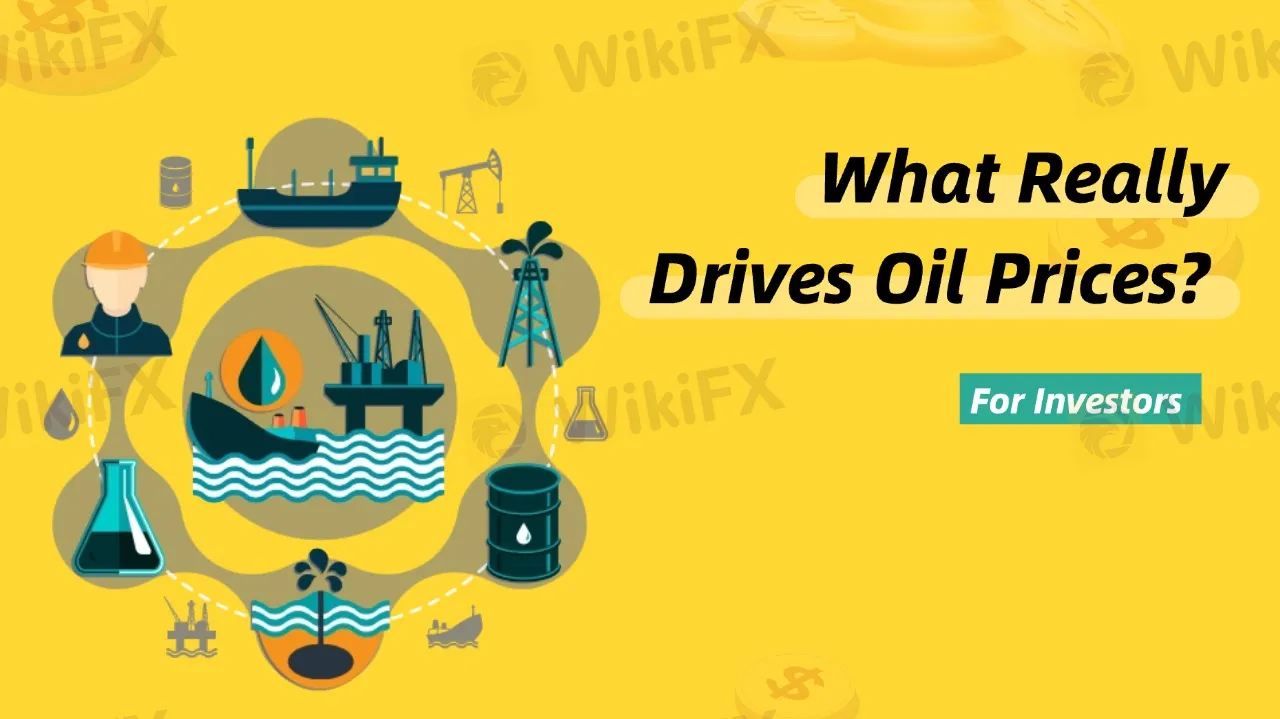OANDA to Transfer Prop Trading Business to FTMO Platform
After FTMO’s acquisition of OANDA, the transfer of the OANDA Prop Trader service to the FTMO platform begins.
简体中文
繁體中文
English
Pусский
日本語
ภาษาไทย
Tiếng Việt
Bahasa Indonesia
Español
हिन्दी
Filippiiniläinen
Français
Deutsch
Português
Türkçe
한국어
العربية
Abstract:For investors, fluctuations in oil prices represent both opportunities and risks. Understanding the factors behind these price changes can help investors make more informed investment decisions.

To grasp the reasons behind oil price changes, it is essential to keep an eye on key reports and data. The American Petroleum Institute (API) and the U.S. Department of Energy (EIA) release weekly reports on oil supply and demand, particularly concerning oil inventory changes. These reports inform investors about the current market conditions and the potential direction of oil prices.
Additionally, OPECs production decisions and the political situation in other countries are also crucial. Investors need to closely monitor this information, as it can lead to rapid changes in oil prices. If oil inventories decrease or OPEC decides to cut production, oil prices are likely to rise; conversely, if inventories increase or production is raised, oil prices may fall.
Oil price fluctuations are not determined by a single factor but by the combined influence of various elements. OPEC has a significant impact on oil prices, as its members adjust production quotas to influence global oil supply. Reducing production typically leads to higher oil prices, while increasing output could cause prices to drop. Moreover, political events in the Middle East, such as wars or economic sanctions, often disrupt oil supply, pushing prices higher. U.S. oil inventories and production also play a vital role, with weekly reports reflecting supply changes that influence oil prices. As alternative energies like solar power and natural gas rise in prominence, oil faces growing demand pressure, which could put downward pressure on prices. Global economic performance and industrial demand are also key drivers, with oil prices rising during economic growth and falling during slowdowns. Seasonal factors, such as increased gasoline demand in summer or heating oil demand in winter, can also cause oil price fluctuations.
In summary, oil price changes result from a combination of factors, including the policies of producing countries, geopolitical events, the threat of alternative energies, and the overall performance of the global economy. Investors need to monitor these factors closely, especially important supply and demand reports and political developments. By understanding these dynamics, investors can better predict oil price trends and make informed decisions. For ordinary consumers, staying informed about oil price changes can also help manage the impact of price fluctuations on daily life.

Disclaimer:
The views in this article only represent the author's personal views, and do not constitute investment advice on this platform. This platform does not guarantee the accuracy, completeness and timeliness of the information in the article, and will not be liable for any loss caused by the use of or reliance on the information in the article.

After FTMO’s acquisition of OANDA, the transfer of the OANDA Prop Trader service to the FTMO platform begins.

Although no large-scale public complaints have yet surfaced, we have identified a coordinated cluster of suspicious investment platforms exhibiting strong characteristics of organized fraud operations.

Invite friends and earn points, the more you invite, the more you earn!

Regulators are scrutinizing prediction markets as brokers add crypto assets to their platforms. Is innovation outpacing compliance?
